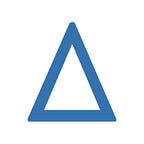Why did the self-assessment cross the road? To get to the other side of their own ego! But in all seriousness, self-assessment is a valuable tool for personal growth and development. So, let’s put aside the chicken jokes and get down to business.
Self-assessment is a process of looking at oneself, evaluating one’s own knowledge, skills, and performance, and reflecting on experiences to gain a better understanding of one’s strengths and weaknesses. It is a way to identify areas for improvement and set goals for personal and professional development. It involves being honest with oneself, taking ownership of one’s own learning, and seeking opportunities for growth and development. Self-assessment can be a valuable tool for individuals to improve their performance, achieve their goals, and make informed decisions about their future.
We have to clear some potential pitfalls that students might fall for: First, it’s crucial to remain objective and honest with yourself. It can be tempting to overestimate our strengths and overlook our weaknesses, but this defeats the purpose of self-assessment. Try to evaluate yourself as if you were someone else looking in, and don’t be afraid to acknowledge areas where you need improvement.
Another thing to be aware of is the potential for bias. We all have our own biases and assumptions, and these can influence our self-assessment. Try to approach the process with an open mind and consider seeking feedback from others to gain a more well-rounded perspective.
Finally, it’s important to recognize that self-assessment is not a one-time event, but an ongoing process. Our skills, knowledge, and experiences are constantly evolving, and it’s important to regularly reassess ourselves and adjust our goals accordingly. By being aware of these potential pitfalls and staying committed to the process, we can make the most out of self-assessment and continue to grow and improve over time.
Now that we have cleared this, lets discuss some techniques and good hygiene practices to follow.
It is very important to set goals to give your assessment a sense of direction. Goals provide direction, motivation, and a clear vision of what an individual wants to achieve. By setting specific, measurable, achievable, relevant, and time-bound (SMART) goals, individuals can focus their efforts, track their progress, and evaluate their success. Setting goals also helps individuals identify areas for improvement and develop strategies to overcome challenges. It’s important to set realistic goals and create action plans that are achievable and measurable to ensure success.
Remember the acronym SMART!
Tools to use depend a lot on the goals, this could be wide-ranging from Journaling to SWOT analysis. Or even just blocking time for self-evaluation is good enough:
- Reflection: Humble reflection specially in a group setting would get you very far. It is the process of looking back at experiences, behaviors, and decisions to evaluate their outcomes and effectiveness. This can be done through self-reflection or in group settings, such as in a classroom or team environment. Reflection can help individuals gain insight into their strengths and areas for improvement, as well as identify areas where they may need additional support or guidance.
- Self-evaluation surveys: Self-evaluation surveys are questionnaires or surveys that ask individuals to rate their own skills, behaviors, and knowledge. These surveys can help individuals identify areas where they may need improvement, as well as areas where they excel. They can be used in a variety of settings, such as in the workplace or in academic environments. You could find templates but I would suggest brainstorming some questions before searching online.
- Feedback from others: Feedback from others, such as peers, supervisors, or mentors, can be a valuable tool for self-assessment. This feedback can provide individuals with a different perspective on their strengths and weaknesses, as well as offer suggestions for improvement. It’s important to be open to feedback and to use it as a tool for growth and development. Perform this frequently and do not take response personally.
- Performance metrics: Performance metrics are measurements used to track progress over time. Examples of performance metrics include productivity, quality, or efficiency. Tracking these metrics can help individuals identify areas where they may need improvement and set goals for improvement.
- SWOT analysis: SWOT analysis is a tool used to identify Strengths, Weaknesses, Opportunities, and Threats. It can be a helpful tool for self-assessment as it allows individuals to identify areas where they excel and areas where they need improvement. By identifying opportunities and threats, individuals can create action plans to achieve their goals and mitigate potential challenges.
- Journaling: Journaling is the process of keeping a journal to record thoughts, feelings, and experiences. Journaling can be a helpful tool for self-reflection, as individuals can use their journal to identify patterns in their behavior, emotions, and experiences. By identifying patterns, individuals can make adjustments to their behaviors or thought processes to achieve their goals.
Self-assessment for students
We have built a platform perfect for students who want to incorporate these methods in their personal learning goals. Constant practice by solving question from topics you have learned would provide you with the accurate picture of understanding. And we use AI to determine the level of difficulty of the question to keep challenging you just far enough.
Abekus, our platform, also has leader-boards for you to assess among the genius minds of the population. You could even follow the people at the top to ‘stalk’ them and learn from the BEST!
So what are you waiting for?!
Sign up at Abekus.com. It is FREE for all!
